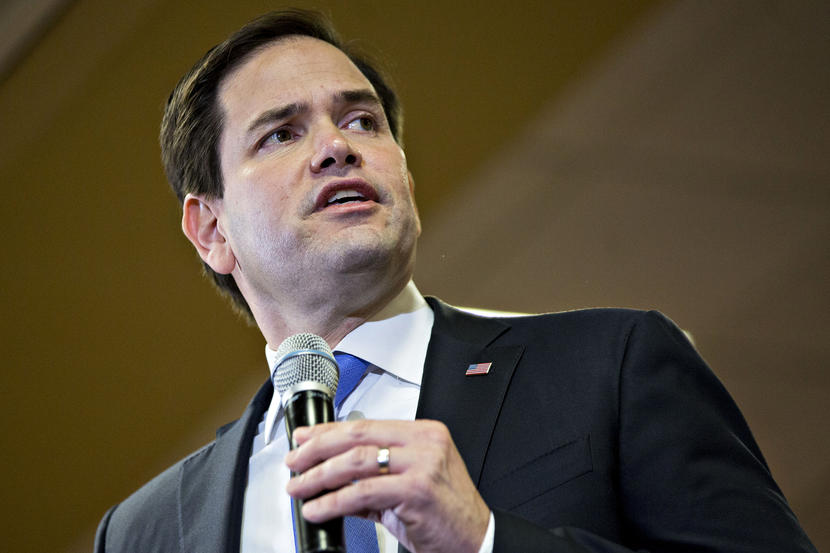When former White House National Security Adviser John Bolton announced yesterday that he’s willing to testify during Donald Trump’s impeachment trial, it quickly jolted the political debate. Indeed, it created a challenge Senate Republicans would have preferred to avoid: how would they justify excluding voluntary testimony from an important witness with first-hand information about the president’s culpability?
The responses from GOP senators were predictably varied yesterday, with some so-called “moderates” expressing interest in hearing from Bolton, though they tended to endorse Senate Majority Leader Mitch McConnell’s (R-Ky.) plan of starting the impeachment trial first, and then making a decision on witnesses later.
But one senator stood out by making a spirited argument in defense of ignoring relevant information.
Sen. Marco Rubio, a member of the Senate Intelligence Committee, told CNN he would not vote for a subpoena of former White House national security adviser John Bolton because he said that it was the House of Representative’s job to get his testimony. “I wouldn’t because… I believe you should be constrained by the information that those articles are based on,” he said. “If the House wants to start a new impeachment inquiry or pull it back and add additional elements to it, that’s their choice to make.”
The Florida Republican had made related comments last week, suggesting the Senate shouldn’t hear new testimony, but that was before Bolton volunteered to provide members with important information they don’t currently have. Rubio, evidently, doesn’t care.
The GOP senator added on Twitter soon after, “The testimony [and] evidence considered in a Senate impeachment trial should be the same testimony [and] evidence the House relied upon when they passed the Articles of Impeachment. Our job is to vote on what the House passed, not to conduct an open-ended inquiry.”
It’s important to understand why this doesn’t make sense.
In the impeachment process, the U.S. House effectively plays the role of a grand jury. It considers the available evidence, weighs the seriousness of the allegations, and makes a decision whether to charge the accused. If a majority of the House votes to impeach, that creates an indictment, which heads to the U.S. Senate for a trial.
As Rubio — who graduated from law school — sees it, after the House votes on whether to bring charges, the search for truth ends. Even if the case against the accused gets stronger, as is true in the current controversy, it doesn’t matter. If the grand jury didn’t have access to certain facts, then those facts have to be excluded from the subsequent trial.
Why? Because March Rubio says so.
There’s nothing in the American system of justice to support such a position. Imagine a hypothetical scenario in which a person is suspected of bank fraud. Prosecutors present evidence to a grand jury, which decides the evidence is sufficient for an indictment. The accused is charged and the case heads to trial.














